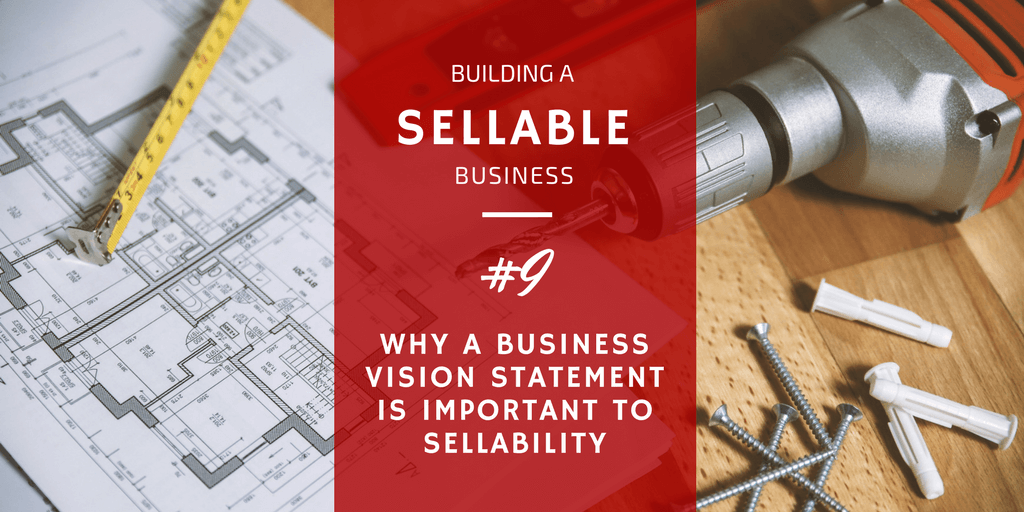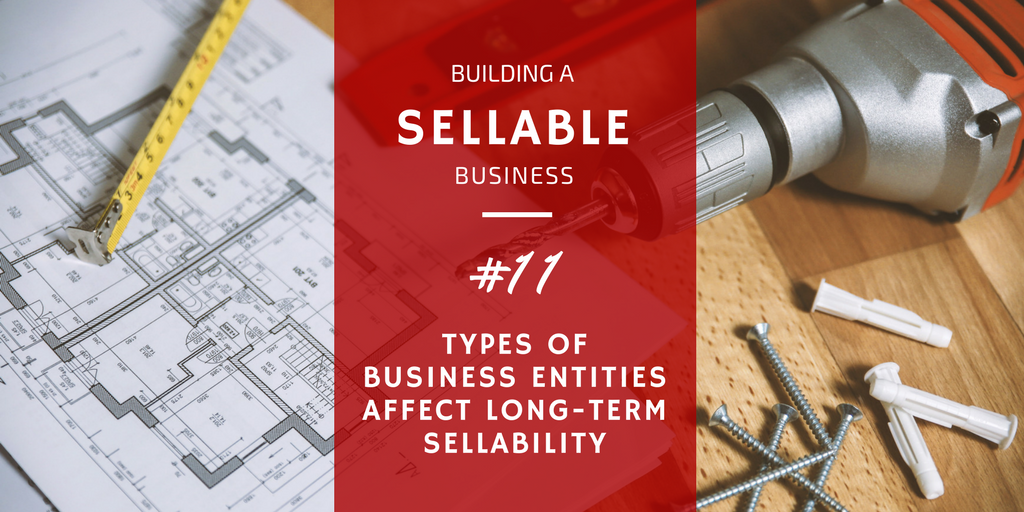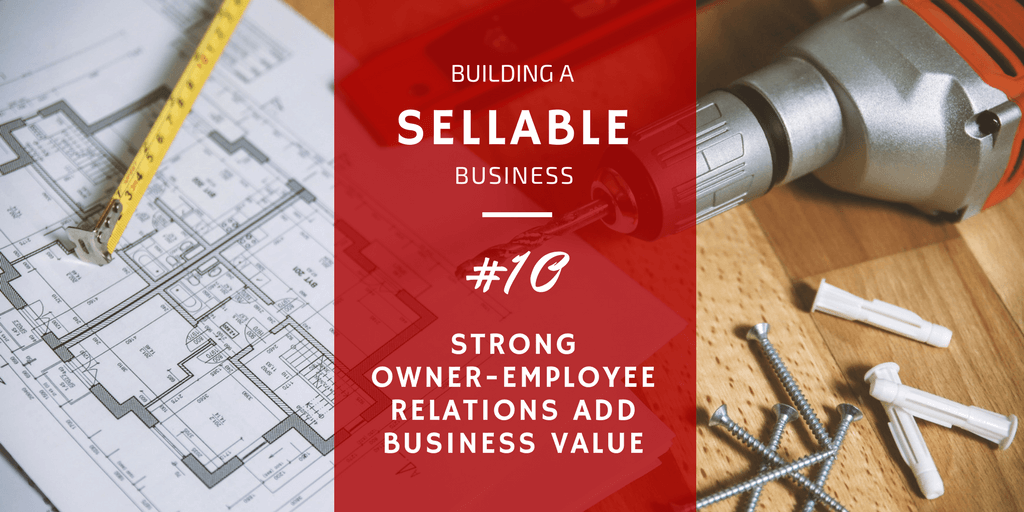
Why a Business Vision Statement is Important to Its Sellability – Post #9
November 30, 2017
Types of Business Entities Affect Long-Term Sellability – Post #11
December 14, 2017Strong Owner-Employee Relations Add Value at the Sale of Your Business – Post #10

In this article, I want to deal with business values and culture that shape owner-employee relations. Why? The business that has outstanding values and inviting culture can help bring top dollar at the time you want to sell. We all recognize the difference between these exciting companies and those with discontent, unmotivated employees… business buyers included. They know that these companies with happy, motivated team members have cash register-ringing value, both today and in the future.
Podcast Time Index for “Owner-Employee Relations – Love People and Use Things”
00:32 – Love People and Used Things
01:54 – Values and Culture
04:38 – How to improve Values and Culture
10:30 – How to identify Poor Values and Culture
10:43 – How much Employee Turn-Over do You have?
12:17 – Lip Service
15:29 – Greed
18:08 – Example of Good Values
19:42 – The difference between Good and Bad Values
20:15 – How to build Good Values
23:20 – In Conclusion
Can I “Help” You?
My dad and I were on one of our multi-weekend hunting trips a few years back. Each morning before heading into the woods, we would pull up to a particular fast food restaurant and every time Dad would order a sausage biscuit. When he got down the road a bit and went to eat his biscuit, he’d realize he had the wrong order. Now, my dad is a pretty easy-going, pretty happy-go-lucky guy most of the time. So instead of getting mad, he’d say, “Well, I guess I’m gonna eat a bacon, egg, and cheese biscuit today.” After three weekends in a row of getting the wrong order, it got downright funny.
The last weekend we made this hunting trip, Dad pulled up to the restaurant’s order box and recognized the voice of the young girl who had taken his order the last three weeks. When she asked him how she could help him, Dad very courteously said, “I’ll tell you what. You just pick out any biscuit you wanna give me and charge me for it. I’m good.” We pulled around, kind of chuckling to ourselves. We weren’t trying to make a stink. The situation was just funny. We definitely weren’t getting top-notch service.
Everyone has been to a store and been shrugged off by an uncaring employee. We’ve all seen the dark side of business customer service, and I want to use my father’s gentleness and kindness as I address it.
Love People, Use Things
I’ve worked with hundreds of business owners over the years, and most of those owners want to talk about money or the problems they’re having with employees. They’ll talk about how to gain more customers and more market share. Yet, I can count on one hand the conversations brought up by business owners about values and culture. Sure, they want to talk about owner-employee relations. But they complain about poor employee work ethic or disrespectful employees rather than asking me how to add value to their team or improve employee morale.
Owners focus on their own grievances rather than how to rectify employee grievances. Oftentimes, those business owners feel they get a bad rap with employees who mistake their drive for greed. They think that all the proprietors care about is money or the next big sale, and the team members hold an unfounded grudge against the owners. Rather than working hard to change employee misconceptions and rebuild owner-employee relations, owners tend to play the martyr.
Additionally, those business owners complain about feeling used. A “friend” will call them up and want “free advice.” He’ll pick through their professional knowledge and never talk to them again. That “friend” will ask for discounts just because they went to the same high school. No one likes feeling used or abused. Business owners shouldn’t feel taken advantage of, and neither should team members. That’s not the way our businesses should operate. Hence, I tell you to love people, and use things.
Cultivate a Culture of Kindness
Although this goes without saying, I’m going to say it – People are not objects. I’m not an object. You’re not an object. We shouldn’t follow the meta-narrative of our nation’s self-serving culture. Instead, we business owners should cultivate a culture of kindness in our company. Words like respect, trust, and fairness should lay the groundwork for owner-employee relations. Employees who feel appreciated, valued, well-compensated, and respected will most likely provide respectful and courteous service to your customers. Therefore, I believe that everything in our business blooms out of our values.
If value is where everything blooms, then culture is where everything grows.
Using agrarian terms, I’ll put it this way. Value is akin to the soil in which we’re going to plant our seeds of kindness and respect. If the soil is good, then that seed should germinate and yield the flower we hope it produces. That’s value.
Culture is like the macro-environment, or the climate-controlled greenhouse, if you will. If the soil is good, but the environment is not conducive to growth, chances are that the seed will not germinate in the soil. In other words, no one plants seeds in Antarctica and expects flowers, even if planted in good soil there. Both the soil and its environment have to be solid.
Folks, growing flowers is like growing a business to sell. You want to build a business that exudes values buyers want and customers expect. Your life’s at stake here. If you have bad values or can’t create nurturing owner-employee relations, you’ll get in the employee weeds, so to speak. Your good employees will leave quicker than you can hire new ones, and your customers will realize your business has problems. Don’t spend your time weeding through in-fighting and hurt feelings. Instead, cultivate an environment of harmony and hard work.
Danger, Danger!
While you’re cultivating this harmonious environment of owner-employee respect and loyalty, you business owners should be on your guard against known dangers to your company’s “greenhouse.” If you don’t guard against the following dangers, you’ll lose your team members. High employee turnover will expose your company’s bad values and disdainful culture. Buyers will sense the tension in your owner-employee relationships. So, beware!
Avoid Lip Service
If your website tells customers that you value open communication and employee loyalty, but you scan through emails on your phone when your team members voice ideas, what good does that do? If your walk doesn’t match your talk, you’re probably going to lose good team members and customers. It’s that simple, folks.
Don’t Get Greedy
If Super Star Steve sells more products in a day than any of your other employees sell in a week, but you give him the same commission that you give Lazy Larry, how motivating is this to Larry? How long will Steve want to work that hard? Owner greed de-motivates employees when it denies them higher incentivized compensation or bonuses.
Get Help
We business owners are great at a lot of things, but building company-wide morale may not be one of our strengths. If you struggle with the ins and outs of owner-employee relations, don’t be afraid to hire an HR advisor or an on-site HR team member.
I believe that if we business owners take care of our employees, they will take care of us and our companies.
Boost Your Owner-Employee Relations
Owner-employee relations tend to expose a company’s core values. So how do we cultivate or build good values within our company? We take care of our employees. Here are some ways you can build-up their morale:
- Reward the behavior you want to encourage.
- Applaud those who portray the values you want to achieve.
- Promote positive re-enforcement instead of punishment.
- Recognize and increase responsibility.
- Be kind.
- “Keep it real”
You business owners may write big checks, or your name may be written on the building. But if you don’t get down in the trenches with your team members, you’ll never successfully lead them. So jump feet-first into your company, and drive its culture.
Love What You Do
So why is it important to talk about values and culture? At some point in the future, a buyer’s going to look at this company you’re building to sell. And that buyer’s going to see into the heart of your company. The buyer’s going to recognize your values and the type of culture you promote within your business. A company with strong values and a strong culture, one that promotes strong owner-employee relations, will bring more money and more reward than a company who has poor values or culture.
Have fun in your business. Love what you do, and create a culture where your employees can love what they do, too.
Next, we will explore picking a business entity, and how that choice will affect your business’s sellability. So friends, like I always say, life is hard. Business can be complicated. Money doesn’t have to be. Let’s continue to make our lives, at least, financially simple.




